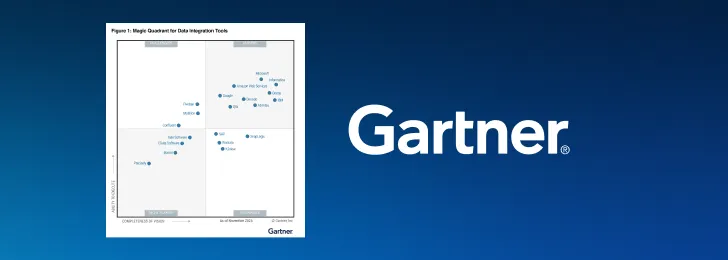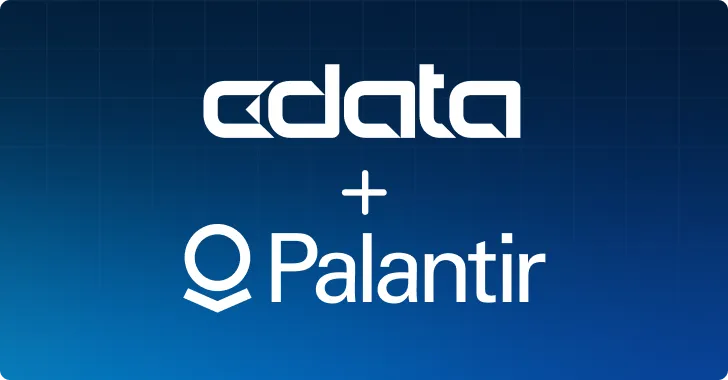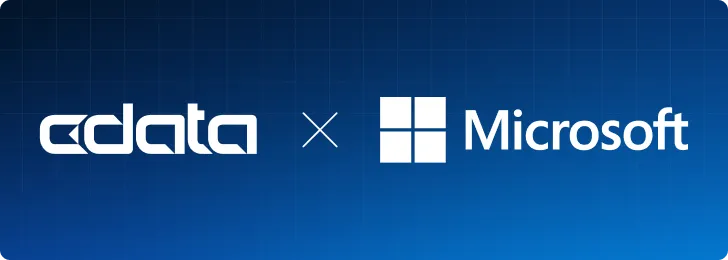
Data grows more crucial to modern business every day, yet many enterprises face bottlenecks limiting their data access. To combat data silos and operational delays, enterprises are opting for newer data management systems that enable lines of business to get the data they need on-demand.
Next-generation data architectures are removing some of these decision-making delays by strategically reshaping how your enterprise manages and delivers data to those who need it. In this article, we’ll cover why data fabric, data mesh, and cloud-based platforms are reshaping data architectures in the months and years ahead.
Why Modernize How We Manage Data?
Data-driven operations bring a heap of benefits that any enterprise craves: New opportunities to understand customer needs, improved interdepartmental collaboration, streamlined operations, real-time reporting, and more.
Today's unprecedented demand for data on the back of older data management systems leaves room for risks and bottlenecks. Next-generation data approaches allow your enterprise to mitigate these risks by improving:
- Scalability: Your data needs will change over time and your enterprise needs to resize and reshape your data storage solutions and other resources as needed. For instance, cloud-based data platforms easily adapt to fit your needs and help your business manage costs, IT resources, and more.
- Flexibility: As your enterprise’s on-prem data ecosystem expands into cloud-native platforms or hybrid solutions, reshaping your systems to include adaptive platforms allows you restructure where and how data flows.
- Resilience: You can diversify your data ecosystem across secure platforms like data centers and on-premises databases to provide the failover measures necessary to respond to any data threat or business disruption — from outages, downtime, and even bad actors.
- Efficiency: Next-gen solutions reduce your demand for custom in-house IT labor by introducing streamlined, low-maintenance systems to access and mobilize data.
How Can My Organization Modernize for Robust Data Operations?
As modern data architectures like data fabric, data mesh, and cloud storage grow in popularity, their infancy allows plenty of room for experimenting to find your unique best practices. Transforming your business with new data solutions is a gradual and iterative approach that will not happen overnight.
That said, your organization can embrace early wins that will build momentum and buy-in from key decision-makers and stakeholders. To expedite your move to reliable, data-driven business operations, your enterprise can plot a successful approach by asking some key questions:
1. Modernize or supplement?
You may be tempted to fully modernize existing systems with next-generation architecture — but removing some legacy components may be too disruptive. Consult with key stakeholders to learn which legacy systems can be replaced or supplemented for specific data, workloads, and services, then match newer options with your needs.
Existing systems may need to be substantially modified before newer systems can seamlessly interact with them, but data connectivity solutions can save you from IT bottlenecks.
As you consider the multitude of modern options like data fabric, data mesh, and hybrid cloud models, ask if your teams can manage these systems as your business scales, changes, and endures market turbulence.
2. Are we prepared to adapt and iterate?
New approaches to managing and working with data take time to get right, so it’s wise to expect changes in direction as your enterprise explores new opportunities. The key to successful implementation of next-generation architectures is to prepare and outline all possible details from design to maintenance.
Clear milestones, timelines, and budgets help your enterprise avoid unforeseen expenses that can stack into a lofty burden. As changes occur, you’ll have headroom to adapt and move forward. Like many enterprises, you may need external consultants and managed service providers to help you overcome talent shortages that hinder your ability to design, deploy, and maintain data solutions.
3. Can we secure, govern, and comply?
Safeguards must be in place to keep data actionable and accessible to the right people without compromising sensitive information or overwhelming your teams. Also consider that industry regulations have grown radically, especially in sectors like finance and healthcare, making it legally challenging for sensitive data to be stored in some cloud platforms.
Rather than rule out cloud-based platforms, some organizations are going hybrid – positioning sensitive data securely on-premises and bridging the gap to cloud services with compliant data connectivity solutions.
4. Are we keeping everyone involved?
Buy-in is critical for any new technologies to be fully adopted and used for the long haul. Specifically, your IT teams, leadership teams, and line of business stakeholders need to be assured that your new data architecture won’t create more problems than it solves.
By sharing changes in a collaborative dialogue with relevant teams, your organization can mobilize all stakeholders as active participants to shape new data solutions. A mix of proper training and requests for constructive feedback will surface and address any critical concerns as your enterprise plans, deploys, and iterates.
Embrace Modern Data Architectures with Connectivity Solutions
Once implemented, modern data architectures are allowing organizations to leverage data with unprecedented ease — but your teams may still need data solutions to bridge the final mile and fully unite your data.
CData offers a complete roster of data connectivity solutions to unite your platforms into a cohesive, connected data ecosystem. With hundreds of data connectors and endless ways to work with your data, your teams will be able to adapt legacy and next-generation architecture to any use case or industry.
Interested in learning what CData can do for you? Book a call with one of our data experts today!





